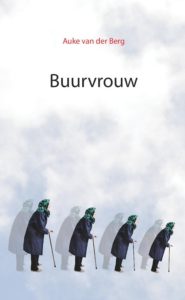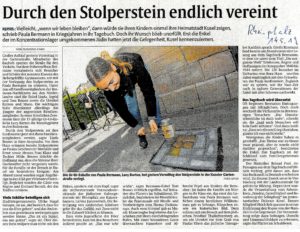As Capitalism Fails, We Need A Roadmap To Survive Climate Change
As we enter an era of energy transition and the effects of climate change become more dramatic, our need for new forms of economic thinking is becoming increasingly urgent. The existing economic theories and models are clearly ill-equipped to address the intertwined challenges of a massive energy shift and climate change because they are all linked to the era of material abundance and cheap energy resources. The existing economic system has failed and if it continues it will lead to inestimable catastrophic consequences. But what would the policy framework of the much-needed new economics on energy, climate and environment look alike?
C.J. Polychroniou: Dr. Järvensivu, how did your research unit end up producing the background paper for the U.N. Global Sustainable Development Report?
Paavo Järvensivu: BIOS is an independent, multidisciplinary research unit, launched in Helsinki in 2015. Our basic task is to study the effects of environmental and resource factors on Finnish society and develop the anticipatory skills of citizens and decision-makers. To be able to do that, our research, of course, deals with the same issues also globally…. Moreover, we felt that due to the urgency to act on the climate crisis, researchers need to engage much more proactively outside the academic community. We dedicate much of our time on ongoing dialogue with decision-makers, journalists and many others…. There are few [other] research teams that would systematically aim at a comprehensive view of the political, economic and cultural changes caused by mitigating and adapting to climate change.
The paper your research unit produced for the U.N. claims with certainty that we will soon be entering a new energy era. What is this new energy era all about, and how will it replace the capitalism of today, which relies mostly on fossil fuels for supplying the vast majority of our energy needs and, subsequently, for growth?
The question of future energy can be approached as a [carbon] source and [carbon] sink problem. According to some estimates, the depletion of accessible fossil fuels would drive dramatic changes in the human energy system. This is true in a certain time frame, but climate change, or the inability of ecosystems in their current state to handle all the emissions from the excessive use of fossil fuels, gets us there first. Mitigating climate change requires a rapid decarbonization of the energy system — not only electricity generation but also heating/cooling and transportation.
Most likely we need to reduce energy consumption in order to succeed in rapid decarbonization. Replacing fossil fuel infrastructure with low-carbon solutions is such a demanding task physically, financially and organization-wise that the chances for succeeding improve dramatically if we lower overall energy consumption at the same time. This would be in line with also other environmental goals, especially with fostering biodiversity. In practice, this would entail qualitative changes in people’s lives through an emphasis on public transport and walking and biking, and perhaps relaxing on the (very new to humankind) requirement to have the same temperature inside throughout the year.
If the major economies don’t succeed in decarbonization, the global fossil economy is in for a rough ride. As an example, in a world with escalating geopolitical tensions — for instance, due to climate refugees — the position of fossil fuel-importing countries is weakened. Those countries — such as Finland, where I’m from — would be better off with less dependence on fossil fuels. Acting on this proactively, investing a lot on low-carbon infrastructure, should be on the high priority list of current and next governments. Read more
Die Rheinpfalz 14.5.2019 ~ Durch den Stolperstein endlich vereint
Anna Eijsbouts ~ Voting In The EU
A short film explaining democracy in the EU and the European Parliament and how your vote moves it.
Written by European Constitutional Law Professor Tom Eijsbouts, animated & directed by Anna Eijsbouts.
This film has been made out of necessity and has been funded via Kickstarter.
Credits:
Voice – Gabriella Schmidt
Sound Design – Rik Kooijman
Additional Post Production – Kasper Werther
Thanks to Lot Rossmark, Marlyn Spaaij, Dorien Suntjens, Amber Verstegen, Tünde Vollenbroek, Jamie K. Bolio
Executive Producers – Jan Eijsbouts, Dolf Huijgers, Pieter Jan Kuiper, Laurence Chazournes de Boisson, Kris Spinhoven
Provisional Plan for The Colonization of New Netherland And Caribbean Possessions
The Directors deputed by the West India Company do not deem it expedient to conjointly advise your High Mightinesses in the present instance on the affairs of New Netherland, and the places thereunto belonging, inasmuch as the superintendence thereof has hitherto been with the Chamber at Amsterdam, which, also specially declares its opinion thereupon, as to the manner that superintendence ought to be directed in future for the greatest advantage. The other Chambers have merely requested copy thereof , to be communicated to their constituents, with the understanding, however, that the aforesaid Amsterdam Chamber shall, meanwhile, remain and continue invested with the aforesaid superintendence, and provisionally put in practice, as far as possible, the following advice:
Provisional Plan for the Trade, Colonization and benefit of New Netherland and of the Island of Curaçao, Bonayro and Aruba, dependent on the said government.
Read more: http://ikkiseiland.com/provisional-plan-for-the-colonization
Harmonie
 De kerk zit wat verstopt in het flatgebouw. Toch hebben veel familieleden en vrienden van de leden van de Harmonie de weg naar de Opgang in Osdorp weten te vinden. Op deze jubileumavond wordt er niet stil gestaan bij het gebrek aan aanwas van jongeren en de zorg om nieuwe bestuursleden te vinden. Vandaag wordt
De kerk zit wat verstopt in het flatgebouw. Toch hebben veel familieleden en vrienden van de leden van de Harmonie de weg naar de Opgang in Osdorp weten te vinden. Op deze jubileumavond wordt er niet stil gestaan bij het gebrek aan aanwas van jongeren en de zorg om nieuwe bestuursleden te vinden. Vandaag wordt
er naar hartelust gespeeld onder de bezielende leiding van de jonge dirigente.
Als ik na de pauze naar buiten loop, zie ik in de gang een doos staan. ‘Zegels en kaarten voor de zending’.
Amsterdam, die metropool, verandert ter plekke in het dorpje waar ik opgroeide. In de hal van die kerk stond ook zo’n doos. Dat de zending in onze familie een wat rare bijsmaak had, mocht dan misschien zo zijn, maar met het voorgoed verdwijnen van een nichtje van mijn moeder in Nieuw-Guinea tijdens het zendingswerk had Hij ook vast een bedoeling.
Keuzemenu
 ‘Rozenberg, goedemorgen.’
‘Rozenberg, goedemorgen.’
‘Ben je Joods?’
‘Pardon?’, zeg ik, ‘waarom vraagt u dat?’
‘Je heet toch Rozenberg?’
Dit wordt vast geen bestelling.
‘En?’, vraag ik.
‘Zijn ze vergeten je ouders op te ruimen?’
Dan hangt ie op.
Ik kijk naar het keuzemenu.
‘Onbekend nummer’, staat er.
Ik kijk naar de nagel van mijn linker wijsvinger.
Ik heb dat ding wat te kort afgeknipt. Dat ergert me al een paar dagen.




